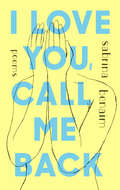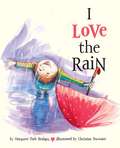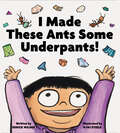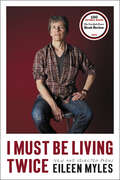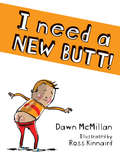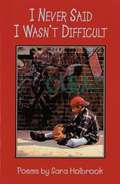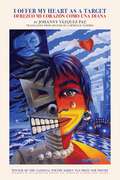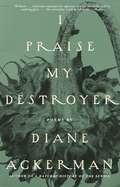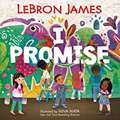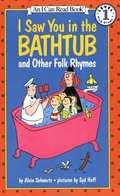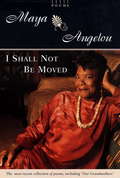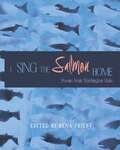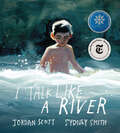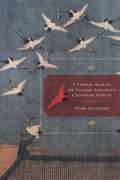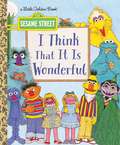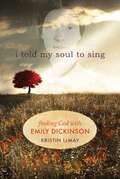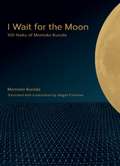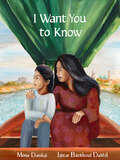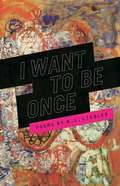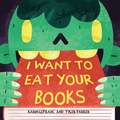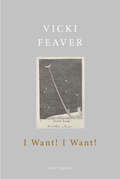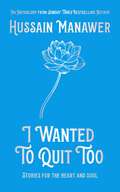- Table View
- List View
I Love You from Here to Heaven Above
by Michelle Medlock Adams Cecil StokesA heartwarming, educational picture book that allows parents to tell their kids how much they love them while also teaching great stories from the Bible. &“I love you.&” &“I love you more.&” Almost every parent and child play this game of who loves who more, but there is no doubt that we are loved most by our Heavenly Father. This book will help children understand once and for all how much they are loved while simultaneously learning treasured Bible stories. How much you love someone isn&’t easy to quantify, but I Love You from Here to Heaven Above is here to tell your children just how much you love them through more than a dozen wonderful and wise analogies. From the noble Easter Donkey to the Red Sea and even the Streets of Gold, your little reader will learn all about the Bible and the amazing things in it while also discovering the most important thing of all: how much you care.
I Love You, Call Me Back
by Sabrina BenaimFrom one of the most-viewed spoken word poets of all time, a poetry collection exploring themes of loneliness, anxiety and longing, while also celebrating the gifts that come with being alone—the chance to live on your own terms, to learn to love yourself without any distractions, and to become your own biggest champion. Over the past few years, Sabrina Benaim toured nonstop across North America and beyond in support of her first book, Depression & Other Magic Tricks, performing, connecting with readers, and leading writing workshops. People constantly thank Sabrina for giving them the confidence and language they needed to acknowledge their own mental health struggles and ask for help, as well as for providing them with a safe refuge. Then, suddenly, Sabrina's long-term relationship ended, the world went into lockdown, and her mother fell ill. Living alone in a different country, with nowhere else to go, Sabrina returned to the page. Unfurling over the course of July 2020—a blisteringly hot month spent in isolation—and in 75 original poems, I Love You, Call Me Back dares to embrace loneliness in all its permutations: the sorrow of getting your mother's voicemail when you call to say "I love you"; the bittersweetness when your dog takes up your ex's side of the bed; the joy of eating ice cream for dinner and singing badly, loudly. Here, Sabrina attempts to work out who she is when nobody else is around, and she comes out the other side with a whole new sense of strength and self-worth. I Love You, Call Me Back is an ode to Sabrina's mom, a celebration of life in the face of so many unknowns, and the cathartic, healing balm we all need right now and for years to come. In her words, "Sometimes self-care is just surviving." And that's okay. Sabrina shows us that there's beauty and courage in that, too.
I Love You, Call Me Back: Poems
by Sabrina BenaimFrom one of the most-viewed spoken word poets of all time, a collection exploring loneliness, anxiety, and longing—and finding peace, and even joy, in unexpected places Sabrina Benaim, author of Depression & Other Magic Tricks, has connected deeply with readers and reached millions of viewers through her poetry, breaking down the stigma around mental illness. Now, she dives into challenging and universal territory: grief over a relationship&’s end, loneliness in a world under lockdown, and the anxiety of caring for a loved one from afar in the wake of a serious diagnosis. Unfurling over the course of one month in 2020, in seventy-five original poems, I Love You, Call Me Back grapples with mental health struggles and the uncertainty of the moment and beyond. In isolation, Sabrina dares to embrace loneliness in all its permutations: the sorrow of getting your mother&’s voicemail when you call to say &“I love you"; the bitter-sweetness when your dog takes up your ex&’s side of the bed; the joys of eating ice cream for dinner and singing badly, loudly. In her raw and deeply relatable style, Sabrina reminds us to love our whole selves: you can&’t have joy without sorrow, and being anxious or depressed doesn&’t mean you can never be happy. In her words, &“Sometimes self-care is just surviving.&” And that&’s okay. Sabrina shows us that there&’s beauty and courage in that, too.
I Love the Rain
by Christine Davenier Margaret Park BridgesMolly hates rainy days. The gray sky, the soggy wait for the school bus, they seem to make everyone grumpy. Everyone except her friend Sophie, who shows Molly the magic she has been missing.The simple, poetic language in this lovely book takes readers on a journey from the girls' first tentative steps into the drizzle to a rain-drenched romp in a puddle. The lyrical text is perfectly matched by the joyful watercolor paintings, which capture not only the color and beauty of a rainy day, but the warm interactions of the girls' blossoming friendship. An exuberant homage to finding pleasure where it's unexpected, the power of imagination, and the joys of friendship, I Love the Rain will have readers singing, "Sun, sun, go away!"
I Made These Ants Some Underpants!
by Derick WilderThe creative team behind Does a Bulldozer Have a Butt? returns with a raucous tale of radical generosity—and custom undies!What's a kid to do when given a day-of-the-week underwear set—wear Monday's undies on Monday, Tuesday's undies on Tuesday like a rule-following robot? No sirree bob! He'll cut and craft, snip and sew until every single one of his friends—from an octopus to a piggy bank to, yes, a line of ants—has their own pair of underwear, whether they want them or not. . . . One boy's valiant attempts to create a pair of underpants for each of his buddies, no matter how imaginary, is a laugh-out-loud testament to the devotion of friendship, the creative muse, and the power of underwear to unite even the least likely of allies—especially on the days you don't want to wear them.UNIVERSAL, TIMELESS HUMOR: Underpants and underpants-related humor are evergreen themes, and the witty, satisfying rhymes plus the unabashed appeal to the hilarity of underwear make this book irresistible to kids and adults alike. GREAT READ ALOUD: The rhyme and rhythm of the text make for a great read-aloud book, and with funny illustrations featuring extra jokes, kids will want to revisit this book forever and ever. It's the type of book that never gets old, for parent or child. CLEVER WORDPLAY AND WARM MESSAGE: This story isn't simply a repetition of the same joke or word. Instead, it's a clever way of using one funny subject in several ways. Its focus on friendship, generosity, and imagination makes it as endearing as it is hilariousJOKES FOR EVERYONE: This text speaks to a juvenile sense of humor without giving any opportunity for kids to add crass potty jokes of their own.EXPERT AUTHOR, POPULAR ILLUSTRATOR: The author is the creator of FitLit Kids, Reading Giraffe, and Playball, literacy initiatives that seek to make new readers. The illustrator is the artist of many popular books for kids, including Does a Bulldozer Have a Butt?Perfect for:Fans of funny books for kids and rhyming picture booksParents, grandparents, and caregiversEducators and librarians seeking children's books to engage reluctant readersFans of Longest Letsgoboy, Does a Bulldozer Have a Butt?, Pete the Cat books, and the wonderfully silly stories of Mo Willems and Laura NumeroffGiving as a birthday, holiday, back-to-school or end-of-year classroom gift
I Must Be Living Twice: New and Selected Poems
by Eileen Myles"Myles speaks with one of the essential voices in American poetry." —New York TimesA collection of new and selected past work from one of America’s most celebrated poetsEileen Myles's poetry and prose are known for their blend of reality and fiction, the sublime and the ephemeral, in which readers can peer into existent places, like the East Village of Myles's iconic Chelsea Girls. But they are also lifted into dreams, through writing that has the vividness and energy of fantasy.I Must Be Living Twice brings selections from the poet’s previous work together with a set of bold new poems, through which Myles continues to refine their sardonic, unapologetic, and fiercely intellectual literary voice. Steeped in the culture of New York City, Myles's stomping grounds and the home of their most well-known work, they provide a wide-open lens into radical life.
I Need a New Butt!: The Cheeky Sequel To The International Bestseller I Need A New Butt!
by Ross Kinnaird Dawn McMillan"A silly story that will cause boys and girls to giggle from beginning to end!" — Norman Public Schools A young boy suddenly notices a big problem — his butt has a huge crack! So he sets off to find a new one. Will he choose an armor-plated butt? A rocket butt? A robot butt? Find out in this quirky tale of a tail, which features hilarious rhymes and delightful illustrations. Children and parents will love this book — no ifs, ands, or butts about it! "I can assure you right now that your kids will love this book. They will giggle, they will laugh, and they will want this book to be read over and over again because it is just plain silly and funny … the perfect kid-combo." — Storywraps
I Never Said I Wasn't Difficult: Poems
by Sara Holbrook* "I never said I wasn't difficult, I mostly want my way. Sometimes I talk back or pout and don't have much to say. * I Never Said I Wasn't Difficult is a collection of poetry that zeroes in on the rollercoaster ride of emotions surrounding the growing-up years, from pain, depression, and anger, to love, acceptance, and understanding. This revised edition contains old favorites and many newly added poems. SARA HOLBROOK began writing poems for her daughters to record the joys and trials of growing up. Since 1990 she has worked as a poet in schools, sharing her poems with children. Ms. Holbrook's other poetry books include The Dog Ate My Homework, Am I Naturally This Crazy?, Which Way to the Dragon!, and Nothing's the End of the World." These and several more books by Sara Holbrook are in the Bookshare library.
I Offer My Heart as a Target / Ofrezco mi corazón como una diana (Paz Prize for Poetry #0)
by Johanny Vázquez PazIntroducing the new winner of the Paz Prize for Poetry, given by the National Poetry Series, featuring an introduction by Rigoberto González, and presented in both Spanish and English. "In Spanish and English, the poems in Vázquez Paz's debut
I Praise My Destroyer: Poems
by Diane AckermanDiane Ackerman's poems reveal her intense response to the several worlds of nature, science, and society. Her lyricism fuses wit and sobriety, meditation and activism, and she confronts us with figures both real and fantastic.As always, her strong connection with the natural world, the realms of language and literature, myth and imagination, combines with her deep understanding of the sciences to offer her readers a singular American voice. This is not a voice crying in the wilderness, but one that gives forth songs of joy and wonder.Organized into seven sections, including "Timed Talk," "By Atoms Moved," and "Tender Mercies," I Praise My Destroyer is less an assorted collection than an organically coherent whole, one that reveals Ackerman's true calling as a twentieth-century metaphysical poet of the highest order.From the Hardcover edition.
I Promise
by LeBron JamesA set of promises are made in this book which help in setting goals and working hard in order to achieve success.
I Saw You in the Bathtub and Other Folk Rhymes (I Can Read! #Level 1)
by Alvin SchwartzThis book is filled with rhymes. They are silly and funny and scary. Nobody knows who made them up. But some of the poets were children. Their rhymes were passed from person to person. And now they have reached you. Maybe some day You will write a rhyme like one of these.
I Shall Not Be Moved: Poems
by Maya AngelouIn her first book of poetry since Why Don't You Sing? Maya Angelou, bestselling author of the classic autobiography I Know Why The Caged Bird Sings, writes with lyric, passionate intensity that reaches out to touch the heart and mind. This memorable collection of poems exhibits Maya Angelou's unique gift for capturing the triumph and pain of being black and every man and woman's struggle to be free. Filled with bittersweet intimacies and ferocious courage, these poems are gems—many-faceted, bright with wisdom, radiant with life.
I Sing the Salmon Home: Poems from Washington State
by Rena PriestThis anthology brings together a wide assortment of poems that celebrate, mourn, and seek to preserve the salmon of the US Northwest. The editor writes, "It is my hope that the poems in this collection will carry into the hearts of readers a wish to preserve and protect the gifts of salmon bestowed by a beautiful living earth; that they will provide the spark of life to carry us into a new cycle."
I Talk Like a River
by Jordan ScottWinner of the Schneider Family Book AwardBoston Globe-Horn Book Award Winner What if words got stuck in the back of your mouth whenever you tried to speak? What if they never came out the way you wanted them to?Sometimes it takes a change of perspective to get the words flowing.A New York Times Best Children's Book of the YearI wake up each morning with the sounds of words all around me. And I can't say them all . . . When a boy who stutters feels isolated, alone, and incapable of communicating in the way he'd like, it takes a kindly father and a walk by the river to help him find his voice. Compassionate parents everywhere will instantly recognize a father's ability to reconnect a child with the world around him.Poet Jordan Scott writes movingly in this powerful and ultimately uplifting book, based on his own experience, and masterfully illustrated by Greenaway Medalist Sydney Smith. A book for any child who feels lost, lonely, or unable to fit in.Finalist for the BC and Yukon Christie Harris Illustrated Children&’s Literature PrizeA Charlotte Zolotow Honor BookAn American Library Association Notable Children&’s BookILA Primary Fiction HonoreeNamed a Best Book of the Year by The Wall Street Journal, People Magazine, NPR, Kirkus Reviews, Shelf Awareness, Bookpage, School Library Journal, Publishers Weekly, Publishers Lunch, and more!A Horn Book Fanfare Best Book of the YearA Junior Library Guild Gold Standard SelectionA Bank Street Best Childrens Book of the Year!A Chicago Public Library Best Book of the YearA CBC Best Picture Book of the YearA Kids' Book Choice Award Finalist
I Think Again of Those Ancient Chinese Poets
by Tom SextonThis all-new collection by former Alaska poet laureate smoothly blends his life in Maine, his years in Alaska, and his love of Chinese poetry—which has been a key influence on his work—into a lyrical fantasy that will enchant lovers of verse. These tightly rhythmic, compact eight-line poems demonstrate a rare deftness with—and an even more uncommon ear for—language, revealing poetic form to be neither a puzzle nor an accomplishment in itself, but a compositional tool and a spur to creativity.
I Think I'm Ready to See Frank Ocean
by Shayla LawsonIn Shayla Lawson second collection, she spins her unique brand of soulful lyrics Each poem of I Think I’m Ready to Meet Frank Ocean riffs on a Frank Ocean song, paying homage to the man but also investigating oceans, The Ocean, and the similarity between heartbreak and break beats by blending Frank Ocean’s musical catalog with personal narrative and social critique. I Think I’m Ready to Meet Frank Ocean builds upon historicized representations of Ocean’s career in ekphrasis, carefully examining the intent of each composition as a metaphoric parallel to Black American legibility.
I Think That It Is Wonderful (Little Golden Book)
by David KorrA classic Sesame Street Little Golden Book celebrating the wonders, curiosities, and beauty of our world!An early Sesame Street Little Golden Book about celebrating the wonders, curiosities, and beauty of our world returns to the line after more than thirty years! First published in 1984, this collection of short, sweet poems celebrates friendship, imagination, curiosity, music, the beauty of the natural world, and more. The poetry is written in the voices of Big Bird, Cookie Monster, Grover, Bert, Ernie, Mr. Snuffleupagus, and others. Girls and boys ages 3 to 7 will read--and find gentle reassurance--about other topics, such as being the new kid, mastering simple skills, and feeling embarrassed. The vibrant art has a nostalgic retro look that depicts the Sesame Street Muppets and Monsters in a way not often seen in later books.
I Told My Soul to Sing: Finding God with Emily Dickinson
by Kristin LeMayA surprising patron saint for all who seek or wrestle with GodA journey through faith and doubt with America's greatest poetMany readers think that Emily Dickinson rejected religion and wanted nothing to do with God. And yet her poetry and life tell a deeper story. Looking closely at twenty-five rare and resonant poems, this intimate portrait reveals how Dickinson occasionally believed, thoughtfully doubted, and in her divine wrestling, met God. In chapters on belief, prayer, mortality, immortality, and beauty, Kristin LeMay uncovers the riches of Dickinson's spiritual life and tells of her own search for God between the lines of the poems Dickinson called "hymns." "Through her deep engagement with Dickinson's poems—by turn prayers, partners, revelations, songs—LeMay has written a book that is, in Dickinson's words, 'the Heart's portrait – every Page a Pulse,' every page a kind of faith." –Sarah Sentilles, author of Breaking Up with God: A Love Story "Part spiritual autobiography, part homage to Dickinson's inexhaustible poetic genius, and part exuberant close readings of the astonishing poems in which she wrestles with questions of faith and belief, I Told My Soul to Sing is a valuable study of the poet's heterodox imagination. LeMay does not shackle Dickinson to a procrustean bed of doctrine and piety, dilute the poet's astringent ironies, or flatten the provocative ambiguities. She has a gift for choosing unfamiliar poems from the canon and for judiciously quoting and interpreting them. A smart, seriously playful, winning, and readable commentary on a quintessentially elusive, thorny, and linguistically daring American poet." –Herbert Leibowitz, editor, Parnassus: Poetry in Review
I Wait for the Moon
by Abigail Friedman Momoko KurodaMomoko Kuroda (b. 1938) is a remarkable haiku spirit and a powerfully independent Japanese woman. The one hundred poems here--her first collection in English--show her evolution as a poet, her acute lyricism, and her engagement as a writer in issues central to modern Japan: postwar identity, nuclear politics, and Fukushima. Abigail Friedman's introduction and textual commentaries provide important background and superb insight into poetic themes and craft.I wait for fireflies / I wait as if for someone / who will never returnMomoko Kuroda is one of Japan's most well-known haiku poets.Abigail Friedman lives near Washington, DC, and is author of The Haiku Apprentice.
I Want You to Know
by Mona DamlujiThis poem with vibrant and colorful illustrations opens a conversation with young readers about family bonds and the lasting impacts of war. Anyone who has had to leave &“home&” and readers who loved the author&’s picture book collaboration with Innosanto Nagara, Together, will want to read I Want You to Know.&“I want you to know that you are still of the placeThat our ancestors have known.The place that they called home.&”How do we speak with our children about wars that took place where generations of our ancestors once called home? How can we explain that those wars continue to reverberate in our lives, many years or even decades after the combat has ended? And why is it so difficult, complicated, and even painful to dream of our return? I Want You to Know is a poem of possibility, of legacy, and of hope.Damluji originally wrote a version of this poem for her daughter on the morning of the 20-year anniversary of the 2003 U.S. invasion of Iraq, a place where generations of Damluji's family had lived, loved, and cared for one another until it was no longer safe to stay. Her daughter has heard many family stories about life in Iraq, but there have also been many silences. I Want You to Know opens a conversation that helps to fill that void.
I Want to Be Once (Made in Michigan Writers Series)
by M. L. LieblerIn I Want to Be Once, M. L. Liebler approaches current events with a journalistic eye and a poet's response. Part autobiographical, part commentary, the lines of Liebler's poems come hard-hitting, but not without moments of great tenderness and humanity. Ordered into three sections, I Want To Be Once provides readers with a look into the author's personal life, as well as our collective history as a nation vis-à-vis the American media. The first section, called "American Life," captures the experience of coming of age in working-class 1960s America and helps to paint the picture of Liebler's early political involvement. The poems in the second section, "American War," focus on the author's cultural work in Afghanistan for the U.S. State Department; Liebler successfully captures the sad realities and fleeting stability of everyday life in Kabul, Jalalabad, and Kandahar. In the final section, "American Psalms," the short, satirical poems muse on present-day American society, culture, and the arts. In these poems, Liebler remarks on everything from public education to public radio to Russia's feminist punk rock protest group Pussy Riot and more. The poems in I Want to Be Once are emotionally grounding but punctuated with a humor that keeps things in perspective. Readers with an interest in poetry and social commentary will be drawn to this engaging collection.
I Want to Eat Your Books
by Karin Lefranc Tyler ParkerHe’s limping strangely down the hall with outstretched arms and a groaning drawl. A zombie! Could it really be? You race to class, but turn to see he’s sitting in the desk right next to you! But odds are you’ll probably be okay, because this is no ordinary zombie. This zombie doesn’t want to eat your brains--he wants to eat your books! Hide your textbooks and your fairy tales, because the little zombie is hungry and he doesn’t discriminate between genres. Will the school library be devoured, or will the children discover something the zombie likes to do with books even more than eating them? This monster book is silly and fun, with a strong message about kindness and friendship. The little zombie teaches kids not to jump to conclusions and to give everyone a chance. And when a real-life mummy shows up, the zombie is the first to step up and offer the mummy his friendship--and to teach her a few things about the joy of books. This is the perfect monster book for little ones who want a thrill but aren’t looking for anything too scary. For kids ages 3 to 6, this is not a scary monster book; rather, it's a great introduction to the importance of reading books and all that you can learn from them. This should have a big draw to librarians and booksellers as well as kids who enjoy books about monster. None of the monsters in the book are scary, however, and it's not a book about kids trying overcome the monsters in their house or fight them. Instead, the kids actually are kind to the zombie and draw him into their friend circle, which is a great lesson for kids to learn.
I Want! I Want!
by Vicki FeaverThe title of Vicki Feaver’s remarkable new collection derives from Blake’s illustration of a child standing with one foot on a ladder to the moon, crying ‘I want! I want!’ In the title poem it represents her childhood ambition to be a poet; in another, she rejects pressure towards achievement and longs to return to the sensual world of the earth. This startlingly honest book follows the ladder of a life for seventy-five years, in poems that show how much is connected. Unlocking the voice of a silenced, powerless girl, Feaver writes about an apparently stable childhood which, to her, was painfully insecure: tormented with parental expectations and sibling jealousy, torn between mother and grandmother. The eleven-year-old who wanted to become a poet becomes the woman ‘buried under ice with words burning inside’, who becomes the old woman still ‘searching for words’ – fearful now of memory loss and a failing body.I Want! I Want! is the work of a poet looking for a pattern in her life before it’s too late. Urgent, accessible and deeply moving, this is poetry of witness and survival: a vivid testament to the triumph of a poet’s spirit.
I Wanted to Quit Too: Stories For The Heart And Soul
by Hussain Manawer** An instant Sunday Times bestseller! **The new book from two-time Sunday Times bestselling poet, Hussain Manawer, I WANTED TO QUIT TOO. Split into five parts - Health, Hustle, Help, Hope and Healing - and featuring exclusive poetrythroughout from award-winning creative, Manawer, this groundbreaking anthology includes short stories and conversations from global household names and hometown heroes including photographer Greg Williams, actress Courteney Cox, actors Hero Fiennes Tiffin and Jay Ellis, YouTuber KSI, rugby union player Maro Itoje, singer-songwriter Sinead Harnett, amongst many others. The book is centred around powerful life lessons, where contributors share their experiences navigating difficult personal circumstances and how when weathering even the toughest storms, instead of giving up they have found the strength to move forwards. It is a powerful celebration of human resilience and love and will offer a vehicle for hope - for readers to create a better ecosystem for preserving their mental health and wellbeing.

